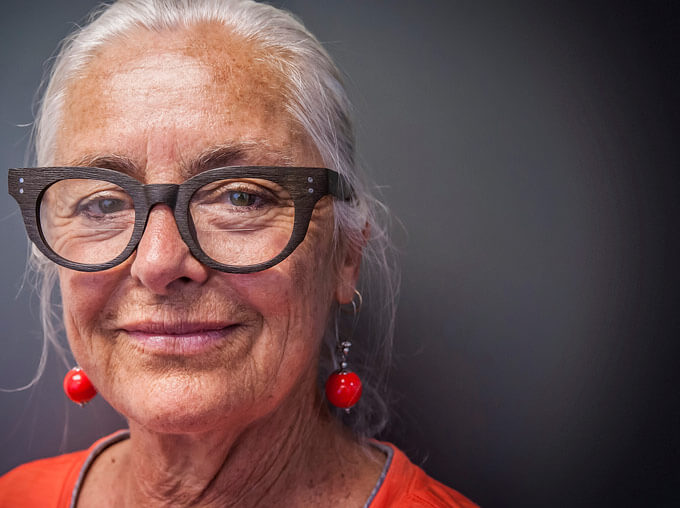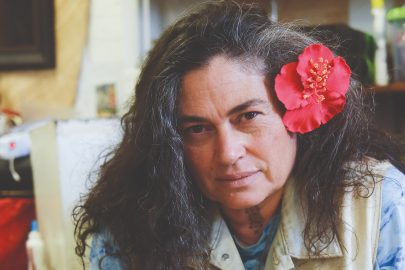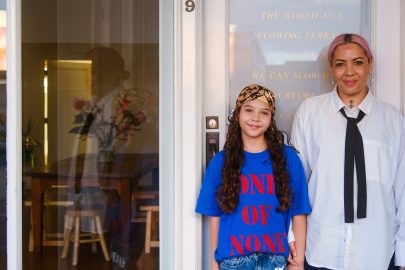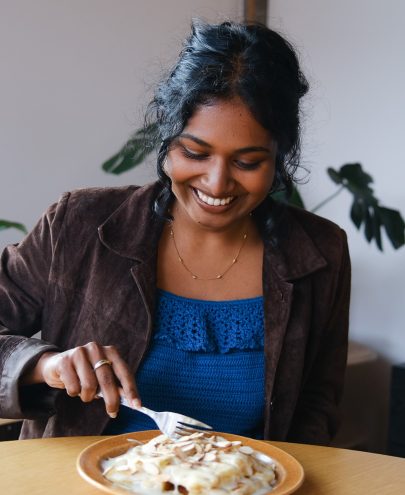Feb 8, 2017 Art

Two years ago, Carla van Zon decided the 2017 Auckland Arts Festival would be her last as artistic director. Then came the diagnosis.
“I got a letter from the social welfare department saying congratulations on your impending 65th birthday, you can register for your pension here.”
She greeted the letter with delight. “I’ve been in the festival business since 1989 and that’s a long time. It’s tiring. The battle for money, looking for shows for the programme, meeting with artists. It’s ongoing and you don’t have any other life.
After 30 years of constant travelling, working seven days a week, I wanted to stop and enjoy life a bit.”
Van Zon handed in her resignation, a successor was appointed, and she carried on programming the festival, on in March, that would be her swansong. All was well until a few months later, on a work trip to Canada, she collapsed to the floor. She was with her colleague, festival CEO David Inns, who picked her up and took her to hospital. Five hours later, she was diagnosed with chronic kidney disease. End stage.
The physically punishing life of a festival director had taken its toll. “Stress. Bad eating, bad drinking, nights in different time zones all the time. I went to the naturopath, as well as the doctor, who said, ‘Your body doesn’t seem to know when it’s night or day anymore’.” Her circadian rhythms were stuffed.
Back in the 1990s, before smartphones and the internet, van Zon’s husband Gregg Fletcher used to travel the world with his wife, acting as a kind of PA, booking train tickets and putting food in front of her. “It was fun back then,” he says, in his gentle New Hampshire accent. (Fletcher is, or was once, American). “But then it got crazier and crazier. Schedules for travel were manic.” Fletcher stayed home. Van Zon sped up. “At the end,” she says, “Because of cheap flights — easyJet and Ryanair — I was travelling to a different country every day.” Fletcher: “She runs on adrenalin and keeps going.” What does he think drives her? “She loves people, loves the arts, loves shows, and telling stories.”
Van Zon, 64, is one of the powerhouses of the arts world, and possibly its most down-to-earth. “I live on a farm, I wear gumboots.” In 2000, she was made an officer of the New Zealand Order of Merit for services to the arts, though she had only just taken over as Artistic Director of the New Zealand festival (after serving four years as executive director), and was yet to spend three years heading up Creative New Zealand’s International team, or five years at the Auckland Arts Festival. Which involves what, exactly? “My job is as a facilitator between an artist and an audience. I’m there to find an artist who creates a work, and to present that work to an audience, so an audience can find an artist. I’m the go-between.”
She pads around the arts festival office barefoot, dressed in the colours of a Hari Krishna devotee, loose fitting rust coloured pants, and an orange Icebreaker T-shirt, accessorised with cherry red glasses. Wearing bright colours — mostly orange but also fuchsia, magenta, coral — is her strategy to combat the invisibility that comes, at least for women, with age. Plus, she says, “Orange makes me happy.” Her office, smaller than Inns’, is on the fifth floor of an office block close to Aotea Square. An entire wall is a collage of friends and family, printed out on the office photocopier and stuck to the wall.
Next to the meeting table in van Zon’s office is her “carry on” suitcase. She has been known to live out of it for four months at a time. The night before, when van Zon was presented with a Lifetime Achievement honour at the raucous 2016 Auckland Theatre Awards, her long-time friend, actor and arts administrator, Tanea Heke, got up and told a story about what was in the suitcase. When Heke and van Zon worked together at Creative New Zealand, managing international arty stuff, they went on a trip to Europe where they shared a room. “She can be mean with the money,” quipped Heke, before telling the audience that one night, she got up in the pitch dark to use the wharepaku and was hit in the face by a pair of wet undies. Wet, because van Zon travelled with only three pairs, and each night she washed one out and hung it up to dry.
Laughing loudest that night was van Zon, whose sense of humour is earthy, even at work. She got up to receive her award, and stood at the side of the stage while her festival colleague, Tama Waipara, serenaded her with a satirical song he had written for the occasion. Various lyrics drew cheers, but the noisiest were for: “I am invincible, I am van Zon,” and “I’ve succeeded in a world full of white men!” which earned a victorious fist-pump from the woman who had.
“When I first entered the festival business… I was the only woman director,” says van Zon. It was 1993, hardly the dark ages. How did she break through? “I’m loud-mouthed.” She also credits good mentors, among them Sir David Gascoigne, the executive chair of the New Zealand International Festival, before he became vice-regal consort to Governor General Dame Patsy Reddy.
Gascoigne recalls hiring van Zon as “a bustling young person” in 1989. “She was an outstanding talent, full of life and energy. Bold, persuasive and very well-organised.” He credits van Zon with teaching him that it was sometimes okay to walk out of a really bad play, which he had always thought extremely rude. “I’m very fond of Carla, she’s awfully good fun, and very good at her job. She occasionally drives people to distraction, because the word relentless does apply to her.”
He adds: “I’ve always thought women are better to work with than men because they’re more reasonable and rational. Men have those things called egos. Women do too, but not to the same degree.” More often than not, men still dominate the arts world, both in positions of power and as originators of creative work. Even in her best year in terms of gender representation, van Zon had a total of two female playwrights and two female directors with work in the same festival. “I haven’t succeeded completely in what I wanted to do.”
One area in which she has emphatically succeeded is in the championing of Maori and Pasifika work. Time and again, those interviewed for this story said it was her greatest legacy. Actor and playwright Nancy Brunning, whose first play Hikoi premiered at the 2015 Auckland Arts Festival, wrote a touching tribute that was read out at the theatre awards: “We were lucky to have emerged as practitioners with you at the helm.” This is not toadying. Van Zon finds a deep satisfaction in nurturing creative careers. Ask her to name highlights of festivals past, and instead of the spectacles, the Really Big Shows, she singles out Hone Kouka’s play Waiora, which cemented her belief in New Zealand work. She mentions actor Jason Te Kare, who appeared in Waiora as a lad of 18, before coming back to the festival to appear in Kouka’s The Prophet, and then again as the director of Cellfish, which has its premiere in the 2017 festival.
“A lot of Maori within the industry affectionately call her Aunty Carla, because she is like an aunty who has supported your work and your career through the industry,” says Te Kare, who recalls that when he was a young man, she teased him and gave him a hard time. It reminded him of his family, and made him feel at home in the industry. “She’s such a stalwart. She shows up to see your shows, she always says hello when she sees you at events, and a big reason for me to pitch Cellfish to be a part of Auckland Arts Festival was realising that it was going to be her last.” He had planned to premier it much later in the year. “But when she said yes, I was stoked to be involved, because of that relationship and that history.”
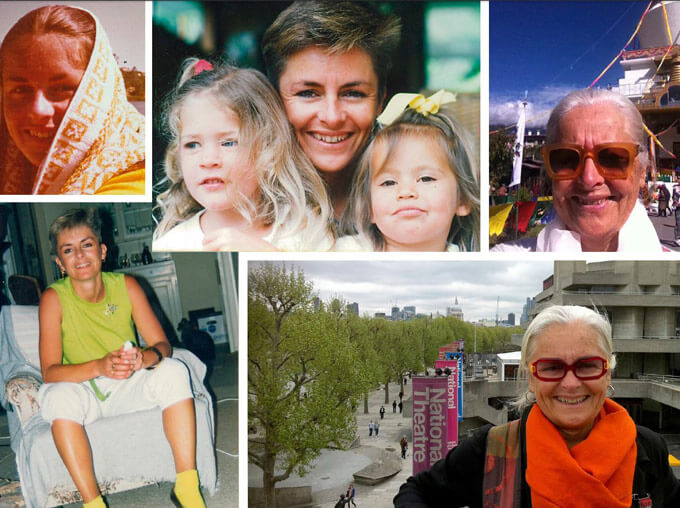
Carla Marja Olga van Zon was born on January 20, 1952, in Te Atatu — “There was only one Te Atatu then” — when the area was all fields and orchards. Her parents were Dutch immigrants who had arrived the year before, via Indonesia, where they had lived and worked. Van Zon was quickly joined by two sisters, Michèle and Yvonne, and when she was three, the family moved to Titirangi. Schooling was at Titirangi Primary, Glen Eden Intermediate and Kelston Girls High. “I’m a Westie through and through.”
A sophisticated Westie. Van Zon’s mother, Boukje, was a pioneering contemporary dance teacher, establishing schools in Henderson, Papatoetoe, Grey Lynn, the city and on the North Shore. Her father, Maurice, worked for the airline Pan Am, but he was also a jazz guitarist. They had come to New Zealand to escape the crowded cities of Europe, and high on their agenda were lots of camping holidays to remote places. “So that mostly meant Maori communities, Wainui, in the Far North, and Omaio, down on the East Cape.” Her immigrant family always got an “incredibly generous reception,” and it was, she says, a singularly formative experience. “I learned a lot. I was very, very lucky. New Zealand is wonderful, but in the 50s and 60s, it was amazing!”
Maurice and Boukje were next-level wilderness campers. Boukje perfected a method of cooking large amounts of rice in — wait for it — a chilly bin. “When I think of all the stuff they had to pack… we didn’t go to camping grounds, we went where my father had to dig a toilet.”
Well before she was a globe-trotting festival director, van Zon travelled like a maniac. With Dad working for Pan Am, airfares were a song. At 16, Carla and Michèle were sent on a trip to Switzerland, Holland and San Francisco by themselves. It was the height of flower power, and the Haight-Ashbury district was going off. “We went to the Fillmore West. Michèle and I must have had eyes like saucers. Country Joe and the Fish were singing, they had all these slides up on the wall, people were out of it and stoned, and I didn’t even know what that was.”
Every year after that, she travelled back to Europe, but there was also time for a degree in Physical Education from Otago University, which led to an unhappy stint in the mid-1970s as a PE teacher at Green Bay High School. Part of her job was to teach sex education. “Too emotional,” she says of teaching. “You’ve got to care all the time…” In those days, she was terribly sporty: cricket at high school, hockey at university; rowing and softball for fun. But her main thing was contemporary dance. She trained in the Limon technique.
Dancing took van Zon to the States, to study for a Masters in Dance and Arts Administration at George Washington University, in Washington DC. She was living just down the road from the White House in 1981 when Ronald Reagan was shot. Washington is also where she met Fletcher, who employed her to clean toilets and work front of house in the youth hostel he managed. His first impression of Carla was, “Ooh, a dancer,” but he stayed for her beauty and intelligence. “She was a big swot.” Of their courtship he says, “It was based around the front desk of the hostel.”
After van Zon had finished her degree, they travelled through India, Singapore, Malaysia and Sri Lanka, before returning to the US to get married in Fletcher’s New Hampshire hometown. Like many enduring couples, they seem, at first, like an odd match, but then you see why it works. She calls him “the rock”, and he says, “van Zon means ‘of the sun’, which she is.” He supports her, and she supports him. Mostly.
In the late 80s, when they came back to live in New Zealand, Fletcher borrowed money to build a ski lodge in the South Island, but more and more, van Zon’s work took her to Auckland, and he abandoned the idea.
She was still dancing, but starting to realise she was better at organising. Then, one day, in class: “I fucked my knee trying to jump as high as Douglas Wright.” She danced for a bit after that, but her heart, and her knee, weren’t in it. In 1989, she got a call from a friend who was meant to be starting work on the New Zealand Arts Festival in Wellington the next day, but had gone into hospital to have her gall bladder removed. Van Zon subbed in, taking a publicity role.
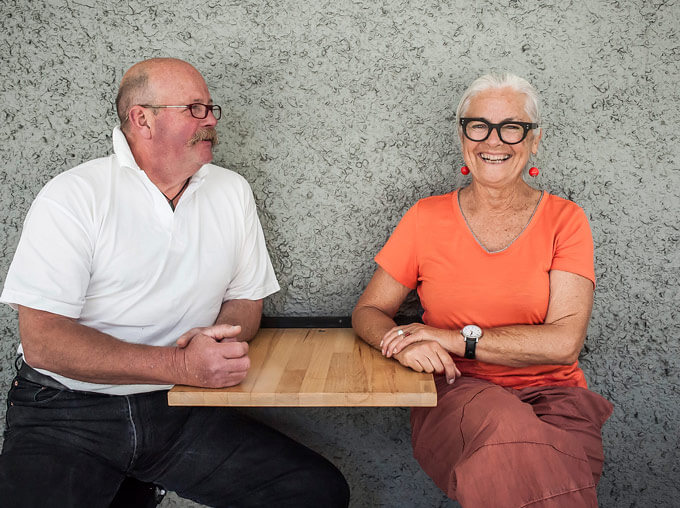
Has the Auckland Arts Festival under van Zon’s artistic direction been a success? “The Festival has come a long way since AK03, held over a rainy fortnight in September/October 2003,” says that festival’s director, Simon Prast, who left after just one year. David Malacari was at the helm for the next four outings, running a festival that, by and large, Aucklanders failed to appreciate.
Then along came van Zon. Her first festival, in 2013, was a statement of blockbuster intent. Large-scale outdoor installations, a Colombian circus troupe and productions from the national theatres of both Scotland and China. The latter’s Rhinoceros in Love, was entirely in Mandarin. Twenty-thousand people attended White Night. Groupe F set the night sky above the Domain on fire. Ticket sales and box office more than doubled from the previous festival, to the tune of three million bucks. (That figure sounds phenomenal but the festival cost $11.2 million to stage). Van Zon seemed to understand that above all else, Aucklanders wanted big, show-offy events that proved to us we were important.
It wasn’t all her doing. The festival board had a vision, and she was charged with making it happen. “I came with ideas, we knew we wanted to go annual [which they did in 2016], to increase audience numbers, to diversify audiences. Then I started looking for programmes that would welcome people in. The most important thing for me was to find things that would demystify art and to have it in all its convoluted versions, from esoteric and thought-provoking to extremely popular, where people could just kind of enjoy themselves, thinking, ‘Oh! Is that what art is?’” To this end, inviting Groupe F was her coup. “I wanted to do a large scale ticketed event that I could control but have lots of people at, welcome families, multiple generations. Art is a community event. You don’t do it alone. You do it with other people — even in a blackened theatre.”
Any discussion of the arts in 2016 has to take in the social and political climate. In Auckland, at least, the industry seems to operate in a state of permanent paradox, unsure of whether it’s swimming or sinking. The Auckland Arts Festival became an annual event with no dip in ticket sales, meaning that across a two-year period, the audience and box-office take has doubled. Festival CEO David Inns, among others, talks of more venues, better infrastructure, of being able to employ people within the organisation all year round. Yet on the same day, in a meeting with a representative from Auckland Live about a show they’d like to put on, van Zon states openly that, “We have no money.”
“Funding, currently, is very difficult,” says van Zon. “We’re in a situation where we’re within a market economy. The value of art is not seen. I’m not just talking about art for art’s sake, I’m talking about art for creativity, art for learning, art for risk taking, so that we see it as a much bigger picture. Those who have art and creativity in their lives are much better able to work in business or in any other fields. They can take risks. We’re taking away risk taking. We’re taking away creative thinking outside the box. You don’t have to be an artist — you can still be an accountant and do all those things.”
Van Zon sees art as a tool to engage people in society, that it’s fundamental to survival. “In a thousand years’ time, they don’t remember the economy, they remember the art.”
Over many years, she has fought the good fight for the arts, even if it means getting shown the door. Heke told another story at the Auckland Theatre Awards that van Zon did not wish to be repeated, but what the hell, she’s retiring: van Zon was on a major Auckland events committee with National minister Gerry Brownlee, around the time of the Rugby World Cup. In Heke’s words, “Carla told that motherfucker we needed some money.” By we, she meant the arts. “Next week she turned up,” said Heke. “No longer on the committee.”
“When the government says you should be crowdfunding more, it scares me,” says van Zon. Even within the market economy model she has witnessed a sea change. “We don’t see the same sponsorship we used to, when, for example [Sir] Roderick Deane was the head of Telecom. He made a very strong commitment to the arts, and they contributed equally to art and sport, and we don’t see that with companies anymore.” She points to a generation of State Owned Enterprise leaders — Deane, Ron Trotter, Selwyn Cushing — who have disappeared along with any belief that to be part of society, you have to contribute to it. “Yes, there is money for certain things but it feels like we’re competing against various things that also are very valuable: child cancer, education. And those decisions become very tough. There’s an abrogation by our government of services to do with the quality of life.”
Since being diagnosed with chronic kidney disease, van Zon hasn’t left the country. Doctor’s orders. One of her kidneys has atrophied completely; the other is functioning on “about six percent”. Her options are dialysis or a kidney transplant. Donors are being tested. Her sisters have volunteered, along with four of her friends. “But I’m really looking for a younger kidney, so I get a longer life,” she says, mischievously. In the meantime, she’s on a strict diet. No sodium, potassium or phosphate. No kumara, avocadoes, tomatoes, spinach, broccoli, oranges, or much else from her garden. No coffee, no wine, no fun. “When asparagus season came in I gorged on those because it was a new vegetable, and now I’m gorging on corn.”
The winter just gone was the first she had spent at home in “about 30 years”, much to Fletcher’s amusement. “We ended up using five times as much wood, because she was cold, working from home.”
The couple, who don’t have children, own a five-acre orchard in Otaki, an hour out of Wellington on the Kapiti Coast, which they share with free-ranging chickens, bees and pigs. Fletcher makes cider and apple juice from their apples, and works as a builder of houses and stage sets. The Otaki community is rich with arts practitioners who are also friends, among them broadcasters Libby Hakaraia and Tainui Stephens, and a host of lighting designers and stage-set builders, many of whom have worked on festivals with van Zon. Commuting from Otaki to Auckland several times a week until the end of the festival is expensive (she pays for her own flights) and slightly bonkers, but: “It’s the only way to get the life I want.”
And after the 2017 arts festival’s final curtain, what then? Because she is Carla van Zon, her idea of slowing down for retirement involves being on the move. “I want to get a campervan and drive round the country.” Aside from a few voluntary gigs, she has nothing on the horizon.
What about an Otaki festival of the arts? “There’s already The Maoriland Film Festival in Otaki, one of the world’s great indigenous film festivals.” Of course there is. But van Zon doesn’t want to run it. “I don’t want stress or to be responsible for big budgets anymore. I don’t mind working my guts out, but…” No. More. Festivals. A quiet life at home will suffice. “And then I get scared and think, ‘what am I going to do with all my time?’ Because I’m not used to not being busy.” Fletcher, too, says, “I’m scared,” but not with any real conviction.
“It’s a real mix of joy and sadness and fear about what life will bring,” says van Zon. “Life will change a bit but as one gets older, one adapts, doesn’t one?”
This article was first published in the January- February 2017 issue of Metro. Follow Metro on Twitter, Facebook, Instagram and sign up to the weekly e-mail

